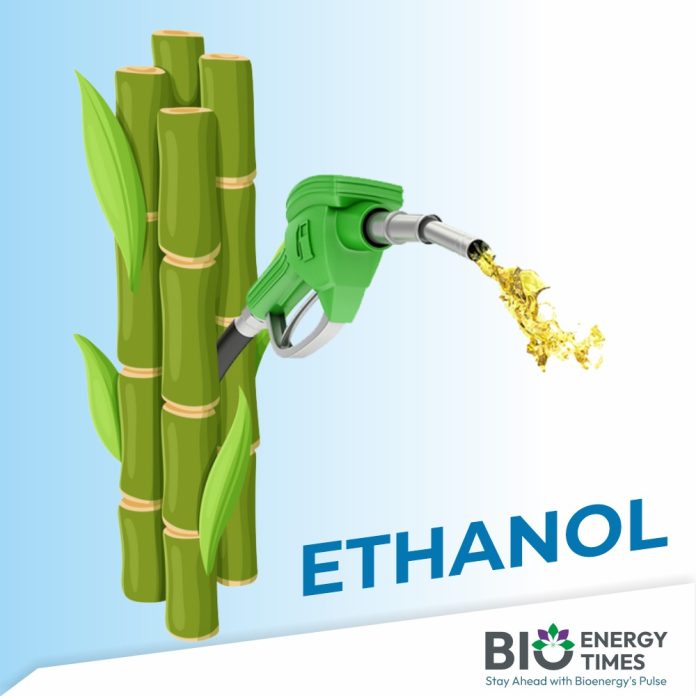Brazil’s success in ethanol blending dates back to 1975, faced with the unfolding crisis due to the first oil shock, the Government focused on the production of an indigenous fuel. Since then ethanol blended automobile fuel changed the country’s economy, energy security and safeguarded the environment against harmful emissions.
In an exclusive interview with ChiniMandi, H.E. Kenneth Felix Haczynski da Nobrega, the Ambassador of Brazil to India said the success of Brazil’s ethanol programme has led to a substantial decrease in CO2 emissions, estimated at 786 million tons since the 2000s. The Ambassador views the Global Biofuels Alliance as the start of a new phase that will establish biofuel technology as a crucial option for decarbonizing economies.
Q. Brazil has been a pioneer in ethanol blending in transportation fuels. Can you provide insights into the success of ethanol blending in Brazil and its impact on reducing carbon emissions?
A. Brazil’s success in ethanol blending can be traced back to 1975 when the Government, facing a Balance of Payment crisis due to the first oil shock, decided to develop indigenous energy in order to secure domestic energy demand. The focus on the alcohol policy, substituting gasoline with ethanol, and the simultaneous agricultural boom led to self-reliance in energy and agriculture.
Breakthroughs like Flex-Fuel Vehicle engines and supportive Government policies have resulted in significant reductions in CO2 emissions, with over 40 million FFVs produced, replacing billions of barrels of gasoline. And it is expected to increase to 17 million by 2030.
Between 1975 and 2021, ethanol has replaced about 3.45 billion barrels of gasoline. The Green House Effect is brought about by the cumulative concentration of gases. It can be safely said that since the 2000s, Brazil has arrested the emission of CO2 to the tune of 786 Million Tons, which is a staggering amount.
Q. Brazil has seen widespread adoption of Flex Fuel Vehicles (FFVs). Are there any collaborative efforts between Brazil and India to promote the adoption of FFVs and increase their availability in the market, especially in India?
A. Over the past three years, Brazil and India have engaged in technical exchanges, with Brazil sharing the success of the FFV revolution. Brazil has shared its success story with Indian counterparts that Flex Fuel Engines are a mature technology and among other aspects are not affected by temperature variations. Brazil is a warmer country and doesn’t have too much cold weather. In India, we do see extreme temperatures.
Collaborative efforts include dialogues and technical exchanges, evident in India’s automotive industry showcasing FFV prototypes at the Bharat Mobility Event. While business considerations are crucial, it’s anticipated that significant changes in FFV adoption should occur in the near future.
Q. There has been a remarkable development with the formation of the Global Biofuels Alliance (GBA) in New Delhi last year. How is Brazil collaborating with other countries, including India, to promote the use of biofuels and achieve sustainable energy goals?
A. The Global Biofuels Alliance is, first and foremost, the beginning of a new phase. It will consolidate biofuel technology as an important option for decarbonisation of our economies, in keeping with the imperative of promoting sustainable development on all three fronts: economic, environmental, and social. As a matter of fact, in many Global South countries with tropical climates, bioenergy can be a cheaper solution and a more competitive pathway for achieving net zero faster, creating jobs and income for rural populations.
Q. There is a lot of talk about Sustainable Aviation Fuel. Do you see Brazil playing an important role?
A. Given its vast agricultural resources and long-term experience with biofuels, Brazil is well positioned to play a major role in Sustainable Aviation Fuel (SAF). While Embraer has tested ethanol as SAF, its large-scale use awaits congressional regulation in Brazil. The pending bill is expected to define production regulations and technical specifications for SAF, reflecting Brazil’s commitment to explore sustainable alternatives in aviation.
Q. Regarding agriculture policies that the Brazilian Government has introduced for the promotion of its ethanol industry and encourage sustainable practices. Are there policy frameworks that could serve as models for other nations, particularly India, aiming to boost its biofuel sectors?
A. Brazil acknowledges the differences in regulatory and social environments between Brazil and India. While it is not up to Brazil to provide policy models, we are willing to share insights on enhancing sugarcane and corn productivity through technology. The complex debate of food vs. fuel is recognized, and Brazil is open to sharing experiences to contribute to India’s biofuel sector development.
Q. The WTO meeting is underway in Abu Dhabi. Tell us about what we can expect regarding the Investment Facilitation for Development agreement?
A. The Investment Facilitation for Development (IFD) agreement aims to improve the investment environment of signatory countries; to promote transparency, predictability and simplification of investment-related measures; to strengthen dialogue between Governments and investors; as well as to promote responsible business conduct and special and differentiated treatment.
123 of the 164 WTO Members are signatories to the document, representing all regions of the world and different levels of development. We expect the WTO to adopt the IFD text, thereby incorporating it into its legal framework.
Brazil adhered to the IFD agreement and played a key role in its negotiation, given our experience in investment facilitation agreements, of which the Investment Cooperation and Facilitation Agreement (ICFA) is an example.















